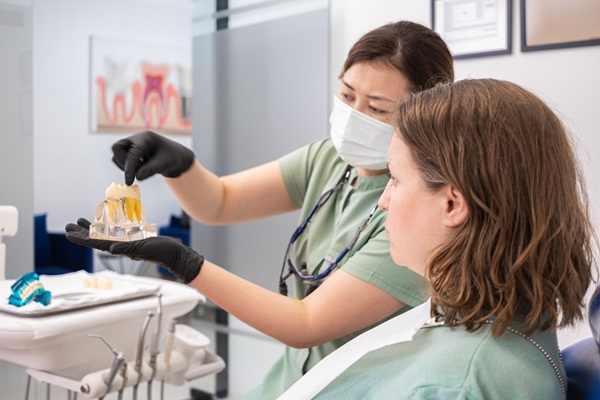The Pros and Cons of Tooth Extraction
Wondering whether you will need to have a tooth removed? Read on to learn more about the pros and cons of . Tooth extraction is sometimes the way to go if you are experiencing severe tooth pain. Although the procedure can be inevitable, a dentist will usually explore possible ways to save the tooth first before recommending extraction.
The pros of tooth extraction
First up on a patient's list of aspects to consider before electing for tooth extraction are the following benefits:
Smile improvement
Some people have crowded teeth, which makes their smiles look unattractive. Having a tooth or teeth removed allows the remaining teeth to be better aligned, improving your smile and allowing the teeth to function properly when biting and chewing.
Future issues can be avoided
When the dentist examines the affected tooth and determines that it is likely to cause more problems in the future, they will suggest a tooth extraction. By extracting a tooth with a bad prognosis, patients can save the costs and hassles that would have occurred in the coming months if they had kept the tooth. The removal of wisdom teeth is an example of a treatment that prevents potential dental issues.
Efficiency in terms of cost
In most cases, extracting a problematic tooth is less expensive than saving it. For instance, a tooth extraction often costs more than a root canal. Keep in mind that having a root canal does not guarantee that there will never be another problem with that tooth.
More choices
When patients have a tooth removed, they have more choices on what to do with the remaining socket. They might opt for an implant-supported replacement, a dental bridge, or a partial denture, for example.
The cons of tooth extraction
Considering the negative aspects of tooth extraction is important in order to make a balanced decision. The following are some cons associated with the procedure.
Negative effects on neighboring teeth
Tooth extraction, particularly through surgical means, has a high risk of adversely affecting nearby teeth. The tools used for tooth extraction, for example, can chip nearby teeth. The jawbone that supports the nearby teeth can be affected as well, causing the underlying teeth to loosen over time. The dentist will do their best to reduce the chances of complications, but the risks are still there.
Replacement costs are high
Patients could also have to pay a lot of money for the tooth replacements, depending on their choice. Partial dentures, for example, are unlikely to last the rest of your life and would need to be replaced regularly. Dental implants often cost more than other options, as well.
Saving the tooth
The dentist may recommend alternatives to save the tooth after performing an assessment. They may recommend a root canal to remove the infection in the tooth and cover it with a dental crown. Gum disease treatment and apicoectomy are other options to consider. When the tooth is severely damaged and cannot be saved, tooth extraction is inevitable.
The bottom line
Reviewing the above pros and cons may help you with your decision on whether to undergo a tooth extraction. If you have any other questions on the process, please contact our dental office to find out about the various options available to you before deciding to remove the tooth.
Request an appointment here: https://www.millarfamilydentistry.com or call Millar Family Dentistry at (817) 885-5214 for an appointment in our Weatherford office.
Check out what others are saying about our dental services on Yelp: .
Recent Posts
A wisdom tooth extraction is not something that most people look forward to. However, it is often necessary to relieve pain and ensure good oral health. With that, it is important to know when to get wisdom teeth extracted. Everyone's mouth is different, meaning that everyone will experience impacted wisdom teeth at different times, and…
Tooth extraction is the removal of a tooth from its socket. There are two types of extraction: simple and surgical. Simple extractions involve the removal of visible teeth. During simple extractions, dentists loosen the teeth and remove them with dental forceps. Surgical extractions become necessary when teeth break off at the gum line or do…
Tooth extraction may become necessary due to damage or decay. The procedure involves removing a tooth entirely from its socket. To remove teeth, dentists use an elevator to loosen them and forceps to remove them entirely. In some cases, dentists may create incisions in the gums for better access. Following the removal, professionals clean and…
For patients who have been suffering from a damaged or infected tooth, finally getting the tooth extracted can feel like a relief. However, bleeding after a tooth extraction can be worrisome and inconvenient. Before a patient undergoes a tooth extraction, it can be helpful to know what to expect in terms of bleeding.After a tooth…


